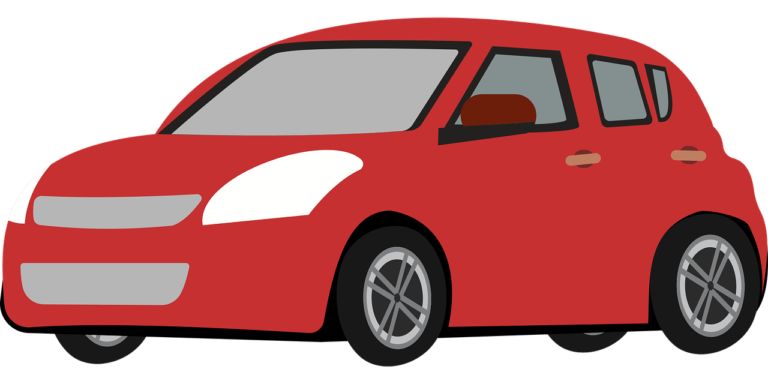
Introduction
Not everyone who drives a car owns one. In the United States, thousands of people borrow, rent, or temporarily use vehicles without owning them. But what happens if you’re behind the wheel of someone else’s car and get into an accident? This is where a non-owner car insurance policy steps in.
Whether you’re a frequent car renter, a rideshare driver, or someone who occasionally borrows a vehicle, understanding non-owner car insurance in the USA is crucial. This policy offers essential protection and peace of mind—even if you don’t own a car.
What Is Non-Owner Car Insurance?
Non-owner car insurance is a liability-only auto insurance policy designed for individuals who do not own a car but occasionally drive one.
Unlike standard car insurance, this type of policy does not cover damage to the car you’re driving, but it does cover bodily injury and property damage liability. That means if you’re at fault in an accident, it helps pay for the other person’s medical expenses and vehicle repairs.
Who Needs Non-Owner Car Insurance in the USA?
Non-owner auto insurance is ideal for:
-
Frequent car renters who want consistent coverage beyond what rental companies offer.
-
Drivers who borrow cars often (e.g., from friends or family).
-
Individuals required to file an SR-22 form but don’t own a vehicle.
-
Rideshare or delivery drivers who use someone else’s vehicle.
-
People between cars who still want to maintain continuous insurance coverage.
What Does a Non-Owner Policy Typically Cover?
A standard non-owner car insurance policy USA typically includes:
✅ Liability Coverage
This is the core of non-owner insurance. It pays for bodily injuries and property damage to others if you’re at fault.
✅ Medical Payments / Personal Injury Protection (optional in some states)
Covers your medical expenses regardless of fault (varies by state).
✅ Uninsured / Underinsured Motorist Protection
If you’re hit by a driver without insurance, this can help cover your injuries.
What It Doesn’t Cover
It’s equally important to understand what non-driver insurance does not cover:
-
Damage to the vehicle you’re driving
-
Comprehensive or collision coverage
-
Rental reimbursement
-
Towing or roadside assistance
-
Driving a car owned by someone in your household
This policy is designed strictly for occasional drivers, not those who have regular access to a specific car.
How Much Does Non-Owner Car Insurance Cost?
The cost of a non-owner car insurance policy in the USA varies, but it’s generally much cheaper than standard auto insurance.
Typical Pricing:
-
Average monthly cost: $25 – $50
-
Annual premium: $300 – $600+
Factors that affect pricing include:
-
Driving history
-
Age and location
-
Frequency of driving
-
Whether an SR-22 is required
For people with a clean driving record, cheap non-owner car insurance is readily available from most major insurers.
Non-Owner SR-22 Insurance
If your driver’s license has been suspended or revoked, a court may require you to carry SR-22 insurance before it’s reinstated.
Even if you don’t own a car, you can meet this requirement through a non-owner SR-22 policy. It proves to the DMV that you have the required minimum liability insurance.
When SR-22 Non-Owner Insurance is Needed:
-
DUI/DWI convictions
-
Too many traffic violations
-
Driving without insurance
-
Court orders
Where to Buy Non-Owner Car Insurance in the USA
Many major insurance companies offer non-owner car insurance, including:
-
GEICO
-
State Farm
-
Progressive
-
Nationwide
-
Allstate
-
USAA (for military members)
How to Get a Quote:
-
Contact the insurer and request a non-owner policy quote
-
Provide driver’s license number and driving history
-
Add SR-22 if needed (additional cost may apply)
-
Review the policy details and purchase online or through an agent
Pros and Cons of Non-Owner Insurance
| Pros | Cons |
|---|---|
| Affordable alternative to regular insurance | No coverage for vehicle damage |
| Maintains continuous insurance record | No coverage for family-owned vehicles |
| Useful for renters, rideshare drivers | Limited coverage options |
| Helps with SR-22 filing | Not valid for frequent use of the same car |
Alternatives to Non-Owner Insurance
If you’re unsure whether a non-owner auto policy fits your needs, consider these alternatives:
-
Rental car insurance: Bought through the rental company.
-
Borrower’s coverage under owner’s policy: When you borrow a friend’s car occasionally.
-
Pay-per-mile insurance: Good for low-mileage drivers who own a car.
-
Named non-owner endorsement: An add-on to an existing policy (rarely used).
FAQs About Non-Owner Car Insurance Policy USA
Q1: Can I buy non-owner insurance without a driver’s license?
A: No, you need a valid driver’s license (or proof of reinstatement) to buy a non-owner policy.
Q2: Can I use non-owner insurance to rent a car?
A: Yes. It provides liability coverage when renting, though you may still need the rental agency’s collision waiver.
Q3: Can I get full coverage with a non-owner policy?
A: No. Non-owner policies only offer liability coverage, not full coverage like collision or comprehensive.
Q4: Does non-owner insurance cover Uber or Lyft driving?
A: Not typically. Rideshare drivers need commercial auto insurance or rideshare endorsements.
Q5: How long can I keep a non-owner car insurance policy?
A: As long as needed. It’s ideal for temporary use or between cars, and it helps maintain continuous coverage.
Summary
A non-owner car insurance policy USA is a cost-effective way for drivers who don’t own a car to stay protected and legally compliant. It offers liability coverage, helps with SR-22 filings, and ensures you’re not caught uninsured while borrowing or renting vehicles.
Conclusion
Whether you’re between vehicles, renting frequently, or need to meet legal requirements without owning a car, non-owner car insurance is a smart and affordable solution. It fills an important gap for non-car owners and helps ensure financial and legal protection on the road.
If you fit any of the qualifying scenarios, speak with a trusted insurance provider and get a non-owner car insurance quote today. It might be one of the smartest decisions you make for your financial security and driving freedom.




